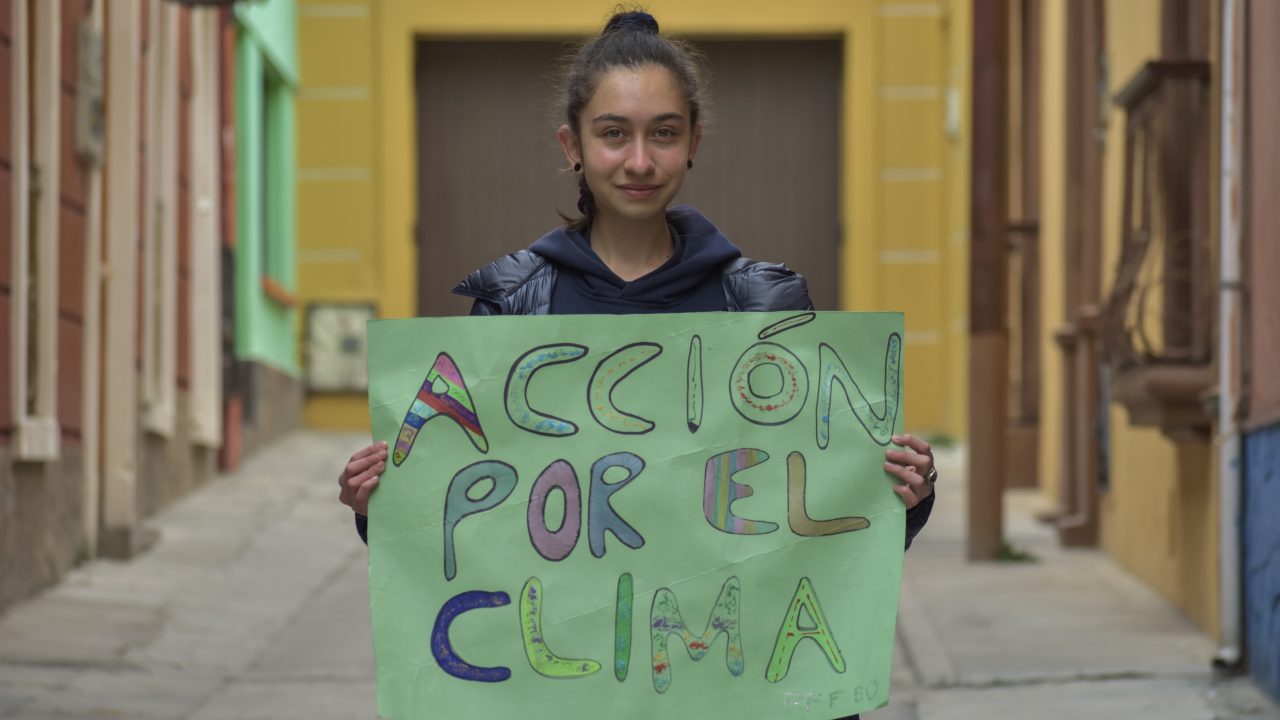Tens of thousands of activists, innovators, and world leaders converged on Glasgow for COP26, a global climate conference aimed at accelerating the pursuit of net-zero emissions and holding Earth’s temperature increase to 1.5 degrees by 2050.
To deliver on these ambitious but critical targets, countries met to discuss the phase-out of coal, expansion of renewables, ecosystem restoration, and smarter investments, among other priorities. Also essential, conference leaders say, is the need for global cooperation and collaboration.
That, and better data.
At the SDG7 Pavilion at COP26, data.org, a platform for partnerships to build data science for social impact, convened a panel of experts for an engaging conversation on how data-driven approaches can get us closer to achieving Sustainable Development Goal 7, increasing global access to clean, affordable energy.
This compelling session, held in the Pavilion supported by The Rockefeller Foundation and IKEA Foundation, puts data at the center of sustainable climate solutions.
SDG7 Data Science Success in Action
Approximately 840 million people still live without access to electricity. And according to The Rockefeller Foundation’s analysis, at the current rate of growth and power distribution, only 650 million people will be on the grid by 2030.
But increasingly, investments on the ground – in both tools and capacity building – are charting a path forward, including through data.org’s network of Inclusive Growth and Recovery Challenge awardees, like Solar Sister and the Basel Agency for Sustainable Energy (BASE).
In Sub-Saharan Africa, Solar Sister has empowered more than 6,000 women entrepreneurs to build clean energy businesses, generating family-sustaining income while expanding the use of solar-powered products like lighting and clean cookstoves. Over 2 million people in Nigeria and Tanzania have access to clean energy thanks to this network.
In India, where lack of refrigeration leads to 40 million tons of food wasted annually, worth $13 billion per year in that country alone, BASE has created a mobile application that makes it easier for smallholder farmers to access sustainable cooling facilities. Their data-informed tools, like a virtual coaching assistant, help level the playing field for these small businesses, providing critical insights into how to store and when to sell foods.
We need to make sure that we're disaggregating data, that we're understanding our populations are not monolithic and that averages don't really tell us much.
Katherine Lucey Founder and Chief Executive Officer Solar Sister
Related Event
data.org at SDG7 Pavilion During COP26
This event occurred on November 6 at 6:30am ET / 10:30am BST
data.org is pleased to present at the SDG7 Pavilion at COP26 powered by SEforALL in partnership with The Rockefeller Foundation and IKEA Foundation.
And around the world, the Global Partnership for Sustainable Development Data continues to grow its network of partners. With more than 300 members and counting – including data.org – this community shares a commitment to leveraging data and data technology in pursuit of fulfilling the SDGs, the world’s shared plan to end extreme poverty, reduce inequality, and protect the planet by 2030.
Three organizations, three stories that showcase how grassroots, data-driven approaches can make a difference across contexts.
“At data.org, we are committed to helping social impact organizations in the energy sector to build a sustainable future that grants affordable and reliable energy access to people around the world,” said panel host Danil Mikhailov, the Executive Director of data.org. “You can’t just kind of translate the same solution and plant it in different countries without understanding how it might change to serve the needs of the communities.”
Why is Data Important for Climate Justice?
Dr. Claire Melamed, CEO of Global Partnership for Sustainable Development Data, says that data can be a game-changer when it comes to scaling up solutions, particularly when reaching rural and remote communities.
Take satellite data, for example. This information can quickly illustrate where opportunities exist to maximize the efficacy of solar panels. Instead of manual surveying, developers or government planners save time and money and improve the accuracy of information by integrating data that already exists.
“We’re often used to data giving us bad news, telling us all the things that are going wrong. But data can also sometimes give us good news stories. And those are absolutely critical in making the changes that we all need to see,” Melamed said. “We see data as being critical at every point in the decision-making chain.”
You can't just kind of translate the same solution and plant it in different countries without understanding how it might change to serve the needs of the communities.
Danil Mikhailov, Ph.D. Chief Scientist data.org
Utilizing high-quality data also establishes trust in the process and can build greater consensus around decision-making, says Thomas Motmans, the Senior Sustainable Energy Finance Specialist at BASE. Data can serve as the foundation that keeps policymakers anchored in the real needs of a community, and can likewise empower the community to lobby more effectively for responsive policies and programs.
Quality is key, though, and the panelists recognized that challenges remain in building better data systems.
How Can We Accelerate the Use of Data?
There is a growing awareness of how data science can be leveraged in the fight against climate change. But problems persist with data collection and analysis and must be overcome to accelerate progress.
First, Melamed points out that more collaboration is needed. Partners need to share data and make information accessible and transparent whenever they can, so datasets can be combined to tell a more holistic story. Motmans agrees, noting that data silos continue to be a challenge. Even well-intentioned data providers, like governments or civil service organizations, sometimes collect information without a vision for how it will be used, and then stop short of making the information public in a usable format.
“In the world of data, we tend to see that once we have the data, then the problem is solved,” Melamed added.
Second, all data should not be treated equally.
“I’m passionate about this,” said Katherine Lucey, Founder and Chief Executive Officer of Solar Sister. “Whenever we are working with data and trying to understand it and learn from it, we need to apply a gender lens. We need to make sure that we’re disaggregating data, that we’re understanding our populations are not monolithic and that averages don’t really tell us much.”
We need to democratize this world and to have more people who feel confident understanding data.
Dr. Claire Melamed CEO Global Partnership for Sustainable Development Data (GPSDD)
And perhaps one of the most significant and consistent barriers that the panelists see is lack of capacity. For data to be truly inclusive, accessible, and actionable, people at every level of decision-making need the skills to understand it, from the community level up through heads of government. Those skills must also be distributed across diverse groups to ensure that the voices and perspectives of communities are represented at the table.
“People can only do the things that they know how to do. Skills are absolutely important, not just to help us get better decisions, which is critical, but also I think to democratize the world of data,” Melamed said. “We need to democratize this world and to have more people who feel confident understanding data.”
Building capacity and closing the skills gap takes investment, and investment grows from demand. The panelists pledged to do their part to increase capacity, demand, and investment for data for good, and through convenings focused on actionable outcomes, a growing network of partnerships, and support for force-multiplying efforts like the Inclusive Growth and Recovery Challenge, so will data.org.
Learn about data.org’s work to democratize data for good, read more stories of impact, and sign up for the newsletter for the latest news and upcoming events.



